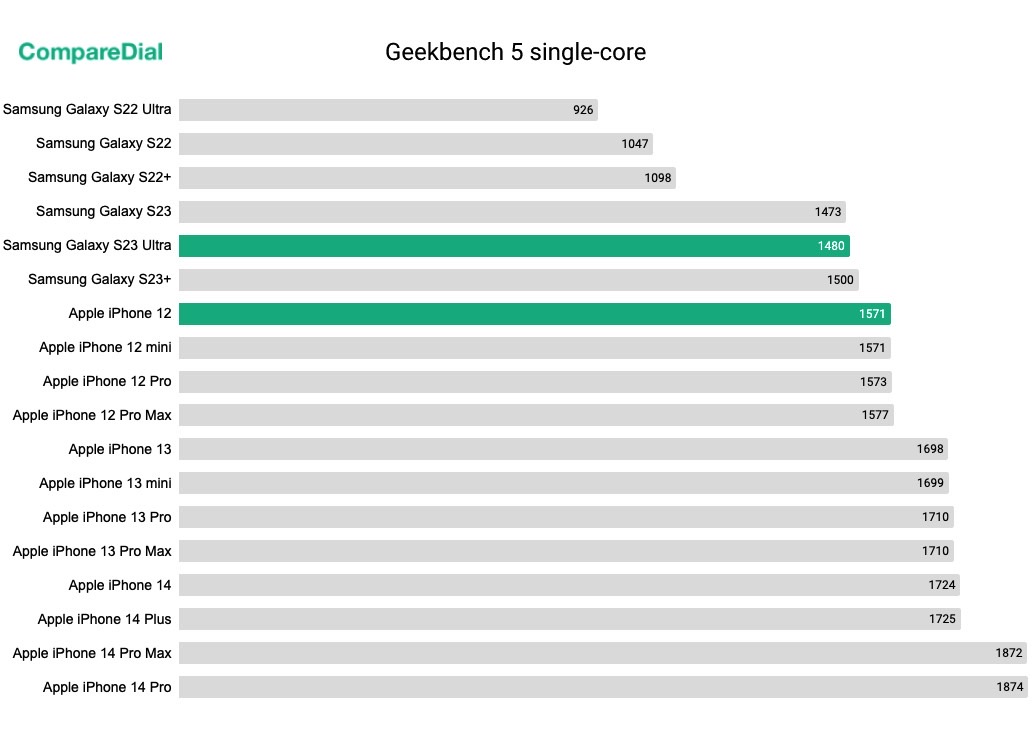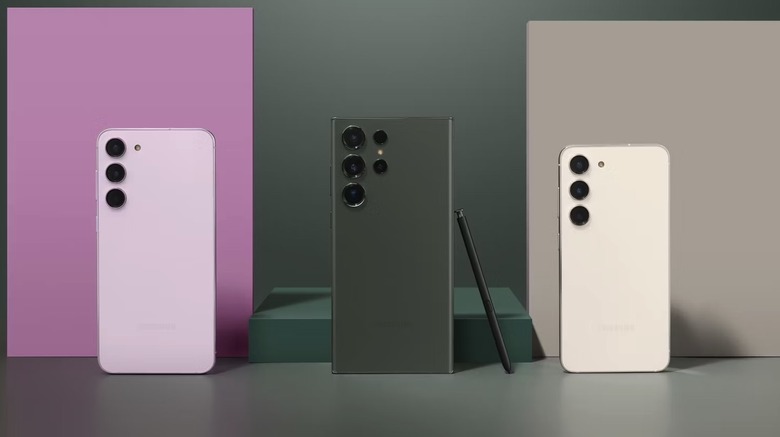Galaxy S23 Ultra Is Slower Than The iPhone 13 Mini And iPhone 12 In Benchmarks
The Galaxy S23 series hits stores next week. It's easily one of the most exciting Galaxy S updates in recent years. There's one particular reason why the new handsets are so compelling. All Galaxy S23, S23 Plus, and Ultra models will feature the same custom Qualcomm Snapdragon 8 Gen 2 chip. But Qualcomm's new System-on-Chip (SoC) can't outperform the iPhone. The Galaxy S23 Ultra can't match the 2021 iPhone 13 mini and 2020 iPhone 12 in benchmarks, let alone the iPhone 14 Pro and Pro Max.
Samsung learned its lesson after the Galaxy S22 chip disaster, which saw the Exynos chips throttle performance tremendously. The handsets were excluded from benchmark tests for cheating, and Samsung had to apologize to customers and shareholders. Samsung vowed to improve its Exynos chips, and that will take time.
That's why the Galaxy S23 phones pack Qualcomm's best possible SoC. Also, it's a custom chip clocked slightly higher than the regular Snapdragon 8 Gen 2 chip. All Galaxy S23 models will score similarly in benchmarks. The Ultra's only advantage over the other models is more RAM.
The first Geekbench 5 tests are available for the Galaxy S23 models. We already showed you how fast the non-Pro iPhone 14 and the iPhone 14 Pros are. We're looking at a 20% performance gap between the non-Pro iPhone 14 and the Galaxy S23 Ultra. This proves Apple still rocks the best mobile chip in town if the second-best beats the S23 in tests.
But a closer look at the single-core Geekbench 5 benchmark results will tell you that the iPhone 13 mini and iPhone 13, which rock the base A15 Bionic chips, can outperform the Galaxy S23 Ultra. That implies the iPhone 13 Pro/Pro Max and iPhone 14/Plus, which feature an A15 variant with more RAM, are even better. And all of them will outperform the Galaxy S23 Ultra in tests.

If that's not enough, the A14 Bionic in the iPhone 12 series is also faster than the Galaxy S23 Ultra in single-core tests. That's the chip that Apple used in the 2020 iPhone.
Therefore Apple also owns the second and third-best mobile chip in town. Qualcomm and Samsung aren't close to outperforming the A-series chips.
Real-life speed tests will probably show the Galaxy S23 phones are nearly as fast as the iPhone 14 Pro models. That's how fast these flagship chips are these days.
The point is that 2020 and 2021 iPhones will hold their own tremendously well against all 2023 Android devices. They might be great alternatives to the iPhone 14 Pros and the Galaxy S23 Ultra for specific buyers. Especially those who do not care much about the underlying operating system and plan to keep their devices for several years.
The advantage of having such formidable chips is that the iPhone 12 and iPhone 13 will continue to run the latest software that Apple and developers throw at them for years to come.
That's why benchmarks continue to be such a big deal. Imagine what field day Samsung would have if one of its old Galaxy S21 phones were to outperform the iPhone 14 Pro in speed tests.
